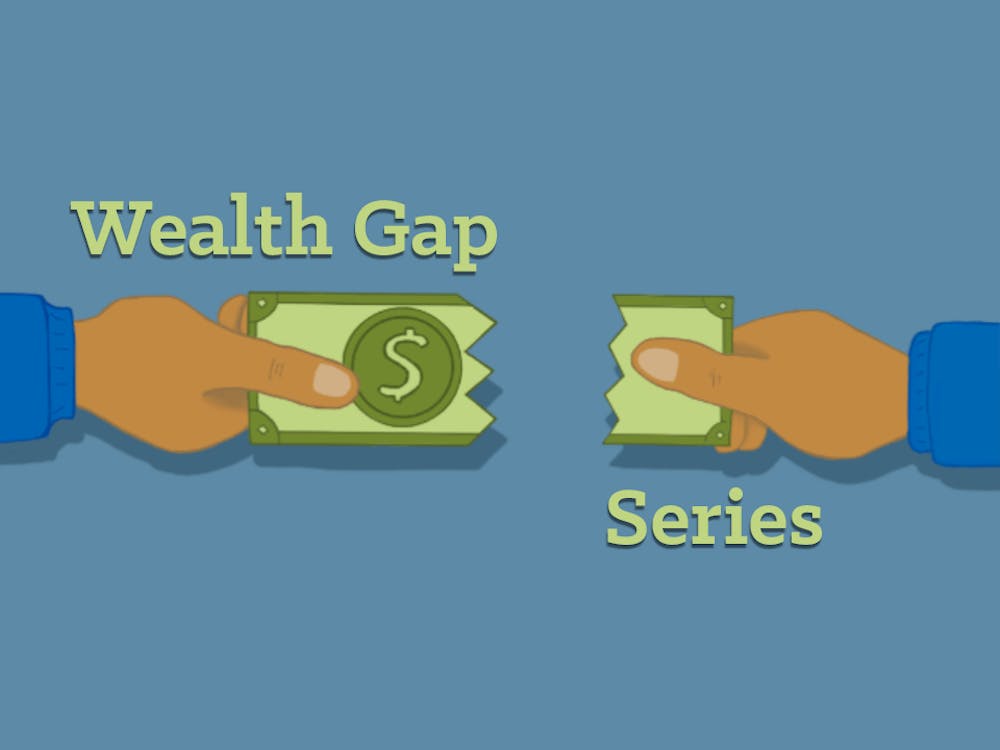Part of our mission at The Chronicle is to bring awareness to issues important to the student body. This effort includes better representing marginalized communities on campus, a goal that gave rise to and guided the wealth gap series. In five news stories and one column, released between today and Thursday, we hope to highlight specific challenges related to wealth that many low-income students face, as well as the student body’s relationship to money and resources.
Every student’s experience at Duke is shaped by their identities. These identities weave themselves into every facet of college life, from the friends we make to the courses we take. One of the most pervasive yet disparate identities on campus is one’s wealth.
Wealth is not just how much money you have. It encompasses the resources, assets and possessions your family has accrued, and it greatly influences a student’s academic and personal journey at this university.
We can see quantifiable differences in wealth on campus. Where do you go for spring break? How much are you spending to eat off campus? How many hours do you work a week?
However, wealth is also an invisible identity that is more salient in the minds of less-affluent students. What pressures do you face to provide for your family, what opportunities aren’t available to you due to cost, and do you have a safety net to fall back on in cases of emergency?
As you read these stories, we hope you consider how your association with wealth has formed your Duke experience, as well as that of your friends and peers. We further hope that this series helps make the community more aware of the different backgrounds and struggles that students encounter at Duke.
This series was originally planned to be released soon after spring break, but it was delayed because of the closure of campus and the move to online classes. It was intended to be a cross-departmental collaboration to cover the wealth gap from different perspectives, but various projects and articles were canceled due to the pandemic.
We have decided to not yet write a story about the relationship between COVID-19 and the wealth gap. We made this decision because of concerns from students about the ongoing impacts of the pandemic and the mental states of those burdened by it.
Nevertheless, we see wealth disparities in the way COVID-19 has affected the Duke community. As shown in a Duke Student Government survey about students’ preferred grading policy, parts of the student body are left without reliable internet, face financial insecurity or are in a difficult home situation. However, even while the pandemic impacts parts of the community in different ways, many community members have banded together to help relieve some of this stress and anxiety.
Shannon Fang is equity and outreach coordinator and was senior editor during The Chronicle's 115th volume. She planned, edited and helped write the wealth gap series.
Get The Chronicle straight to your inbox
Signup for our weekly newsletter. Cancel at any time.

